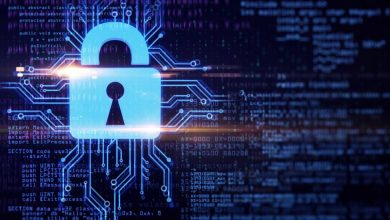The Dark Web’s Role in Privacy: A Focus on bclub.cm

Introduction
The Dark Web is infamous for its association with illegal activities, but it also harbors a subversive notion of privacy. Platforms like bclub.cm operate within this hidden realm, attracting individuals who seek to protect their privacy and maintain anonymity. In this article, we delve into the role of the Dark Web, with a specific focus on bclub.cm, in relation to privacy. By examining the motivations behind Dark Web usage, the privacy-enhancing features of bclub.cm, and the potential implications for individuals, we explore the complex interplay between privacy, anonymity, and the Dark Web.
Understanding the Dark Web and bclub.cm
The Dark Web represents a portion of the internet that operates outside the confines of traditional search engines. It provides anonymity and privacy to users, allowing them to communicate and transact without revealing their identities. bclub.cm is a prominent platform within the Dark Web, primarily known for its involvement in cybercrime. However, it also serves as a hub for individuals who prioritize privacy and seek to shield their online activities from prying eyes.
Motivations for Dark Web Usage
The motivations behind individuals gravitating towards the Dark Web, including platforms like bclub.cm, are diverse. Some individuals seek refuge from intrusive surveillance by governments or other entities. They view the Dark Web as a sanctuary for exercising their right to privacy, free from the monitoring and data collection prevalent on the surface web. Others may have legitimate concerns about their personal safety, such as whistleblowers or individuals living under oppressive regimes. For them, the Dark Web offers a platform to voice their opinions and share information without fear of reprisal.
Privacy-Enhancing Features of bclub.cm
bclub.cm, despite its association with cybercrime, incorporates privacy-enhancing features that attract individuals seeking anonymity. These features include:
a) Anonymity through encryption: Platforms like bclub.cm utilize encryption technologies to protect users’ identities and communications. This technology ensures that sensitive information exchanged on the platform remains confidential and secure.
b) Pseudonymous accounts: Users on bclub.cm can create pseudonymous accounts, allowing them to engage in transactions and discussions without revealing their real-world identities. This feature provides an additional layer of privacy and shields individuals from potential repercussions.
c) Encrypted messaging: bclub.cm offers encrypted messaging capabilities, enabling users to communicate securely and privately. This feature ensures that conversations remain confidential, preventing unauthorized access to sensitive information.
Implications of Dark Web Privacy
While privacy on the Dark Web, including platforms like bclub.cm, can be appealing to certain individuals, it also presents potential implications:
a) Criminal activities: The Dark Web’s privacy-centric environment can facilitate illegal activities, such as the sale of stolen data, hacking services, and illicit goods. While privacy is a fundamental right, it becomes a concern when it enables criminal actions that harm individuals and society.
b) Challenges for law enforcement: The veil of anonymity on the Dark Web poses challenges for law enforcement agencies in investigating and prosecuting cybercriminals. Balancing privacy rights with the need to combat illegal activities becomes a complex and evolving task.
c) Ethical considerations: Privacy on the Dark Web raises ethical questions regarding individual responsibility and societal norms. While some argue that privacy should be absolute, others contend that it should be balanced with considerations of public safety and the greater good.
Balancing Privacy and Ethics
Finding a balance between privacy and ethics in the context of the Dark Web is a complex endeavor. It requires a multi-faceted approach that includes:
a) Strengthening cybersecurity: Enhancing cybersecurity measures is crucial to protect individuals’ privacy while deterring malicious activities. This includes robust encryption protocols, effective threat detection systems, and proactive monitoring of Dark Web platforms.
b) Law enforcement cooperation: Collaboration between law enforcement agencies at national and international levels is essential for combating cybercrime on the Dark Web. Strengthened coordination and information sharing can enable more effective investigations and prosecutions.
c) Public awareness and education: Educating the public about the risks and implications of Dark Web usage is vital. Promoting digital literacy and responsible online behavior can empower individuals to make informed decisions while navigating the Dark Web.
Conclusion
The Dark Web, exemplified by platforms like bclub, offers privacy and anonymity to individuals seeking refuge from intrusive surveillance or oppressive regimes. While privacy is a fundamental right, the Dark Web’s association with illegal activities raises concerns. Striking a balance between privacy and ethics is crucial, necessitating robust cybersecurity measures, law enforcement cooperation, and public education. Understanding the complex interplay between privacy, anonymity, and the Dark Web is essential for shaping policies and practices that safeguard privacy rights while addressing the challenges posed by criminal activities in this hidden realm.



